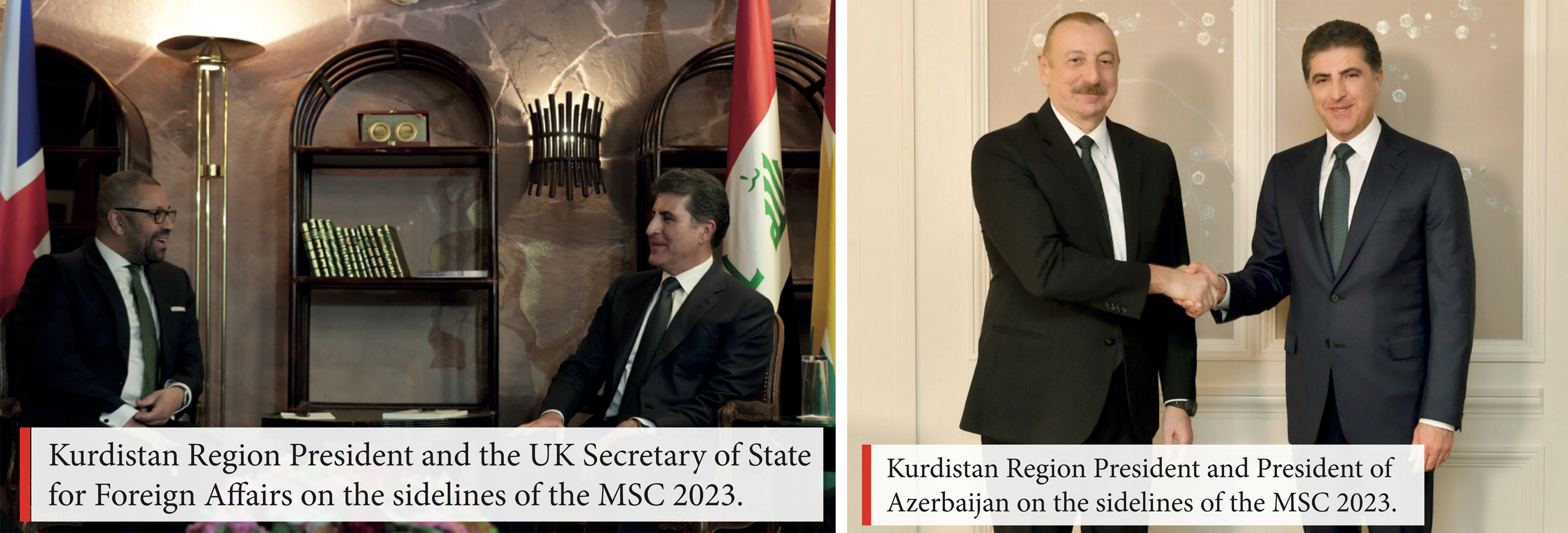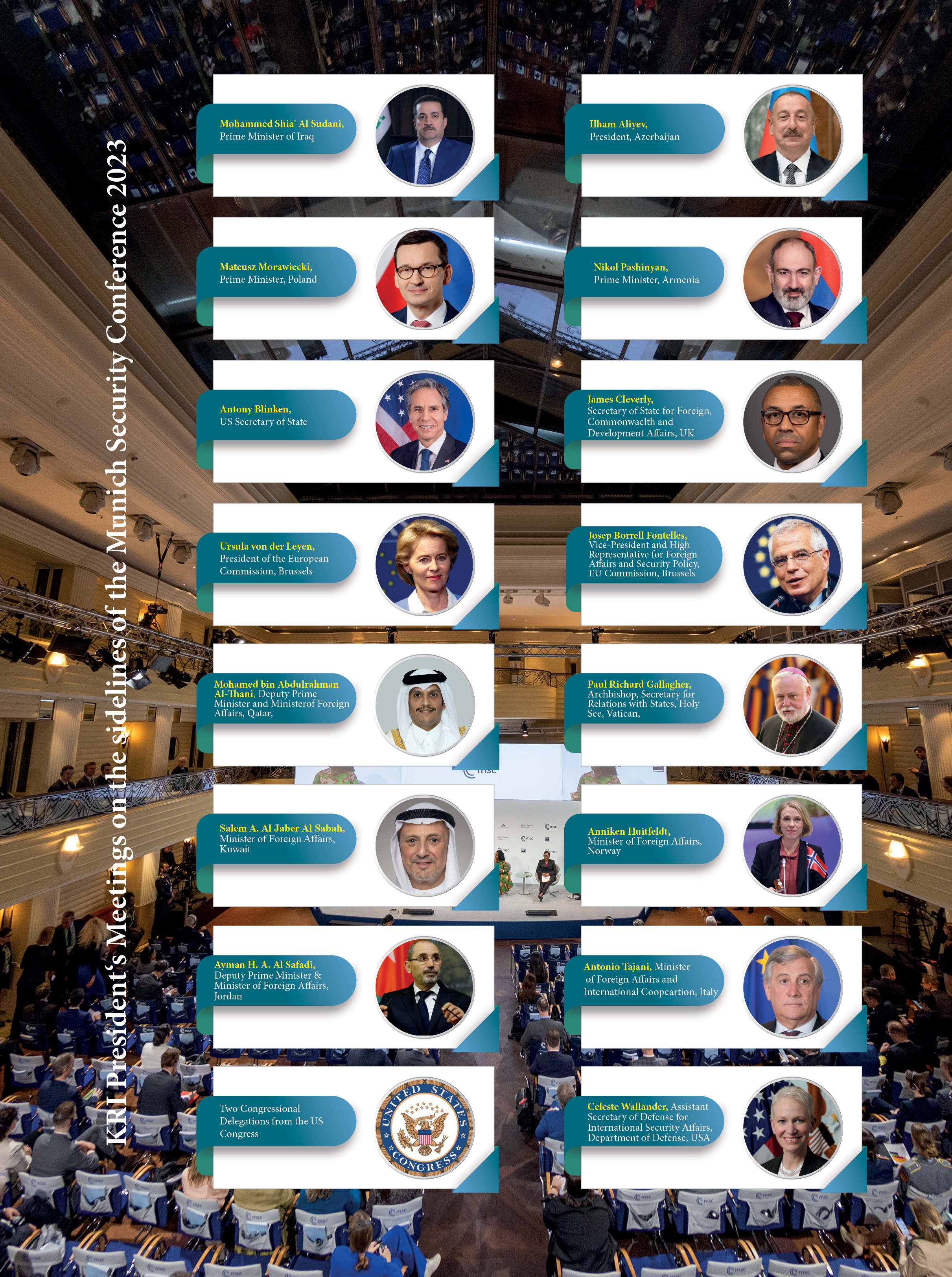The participation of the Kurdistan Region President Nechirvan Barzani at the Munich Security Conference (MSC) was a timely opportunity to share the Kurdistan Region of Iraq’s (KRI) perspective on compounding global threats, and to highlight the challenges and opportunities facing the KRI and Iraq.
The Kurdistan Region President Nechirvan Barzani’s agenda included a number of topics but his three priority issues were security, climate change, and energy.
Security
One the sidelines of the MSC, the President reiterated to the KRI’s partners, including the top American and British diplomats, his unequivocal commitment to tackle common security challenges as well as to advance and strengthen regional peace, stability and prosperity.
Five years ago, Iraq and the KRI’s heroic Peshmerga forces along with their international partners, the Global Coalition to Defeat ISIS, liberated territory controlled by ISIS in Iraq. Although the land was freed, and some of the displaced people have returned to their homes, the ISIS threat remains. The ideology that created ISIS survives and the root causes that led to the rise of the terrorist organization have yet to be addressed.
The Kurdistan Region President Nechirvan Barzani underscored the essential role of continued international engagement for the lasting defeat of ISIS, emphasizing in particular the need for a comprehensive strategy to counter the ideology behind violent extremism and radicalization.
The President emphasized that the KRI will always remain a factor for stability and will continue to work with likeminded partners to make the world a safer place for all.

Climate change and its impact on Iraq
The President of the Kurdistan Region repeated concerns over the worsening climate crisis in Iraq. Iraq is the fifth most vulnerable nation to climate change and climate-induced migration has become a reality for the country. The KRI and Iraq have been particularly impacted by rising temperatures, frequent dust storms, low levels of rainfall, and reduced water reserves. The International Organization for Migration reported that at the end of 2021 approximately 20,000 people in Iraq were internally displaced due to water scarcity. The President warned that climate migration is currently within Iraq’s borders, but if left unchecked, there is a strong risk for outward climate migration from Iraq.
The KRI and Iraq are rich in oil and gas, yet gas-flaring wastes valuable energy that could be used to meet the country’s growing power demands and economic development. The President underlined Iraq’s need to access smart technology in order to reduce gas flaring, build a green economy and a more sustainable energy system.
President Nechirvan Barzani stressed that the climate crisis is a shared responsibility and asked for collective action to implement climate adaptation and mitigation strategies.

Energy
This year’s Munich Security Conference, which like previous years brought together world leaders, and foreign policy and intelligence experts, took place in the midst of a global energy crisis of unprecedented depth and complexity. Ways to address the energy situation were widely discussed.
For decades, Baghdad and Erbil have failed to resolve outstanding issues. While there have been difficulties in the past, the Kurdistan Region’s President said he is cautiously optimistic that both sides could reach a lasting resolution on the basis of the Iraqi Constitution on most outstanding issues including oil and gas. Today, KRI’s oil sector is not only meeting local demand but is also contributing to the international market. In addition to meeting local needs, the Kurdistan Region’s gas fields have the potential to contribute to international demand.
President Nechirvan Barzani reiterated to friends in the international community that resolving outstanding issues in the country will bring about political and economic stability and improve security for all Iraqis.
This will also allow Baghdad and Erbil to work together so that all the people of Iraq, regardless of their ethnic or religious background, will benefit from the country’s vast natural resources.


